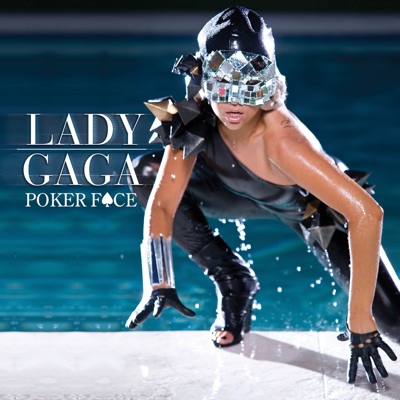Videos by American Songwriter
“If you have a fan base large enough to fill a living room, then your music is getting played and traded over the internet,” says Eric Garland.
He would know. He’s the CEO of BigChampagne, a company that has been tracking the way music moves around the web since 2000. Whether a song is being played from a MySpace page, downloaded from eMusic or traded illegally on Limewire, the company has been acquiring massive amounts of information about how a song roams around the internet.
“If you have a fan base large enough to fill a living room, then your music is getting played and traded over the internet,” says Eric Garland.
He would know. He’s the CEO of BigChampagne, a company that has been tracking the way music moves around the web since 2000. Whether a song is being played from a MySpace page, downloaded from eMusic or traded illegally on Limewire, the company has been acquiring massive amounts of information about how a song roams around the internet.
Back in the heyday of the original Napster, Garland recognized that file sharing represented a sea change in music distribution. While record labels spent years trying to stop the practice, Garland saw the potential for a more democratic and accurate way to evaluate what people were listening to than counting album sales and radio play.
BigChampagne makes it their business to know where and when songs are played and traded on the internet. Recently their lists have been incorporated into Billboard’s Radio Monitor, Nielson Ratings and have actually affected Clear Channel radio station playlists as programmers see what everyone is interested in downloading in their area and matching their playlists to what people are seeking out on the internet. The result is that, for the first time, music consumers are actually influencing radio playlists-a privilege formerly reserved for independent promoters hired by record labels.
Currently, BigChampagne’s flagship product is its internet charts. You can find the top 10 of most of their charts at their reporting website, www.bcdash.com, but the quality and amount of information they gather is much deeper and more interesting than what you need to generate weekly top 10 lists. They don’t just collect information on the top downloads; they have information on everything that gets downloaded and traded-even if it’s just once-and can form pretty detailed portraits of the people who are downloading them. If you’re an artist or songwriter who has music accessible on the internet (meaning just about everyone these days), BigChampagne has the valuable info on who’s listening.
More than ever, the industry needs this information. Struggling record stores can find out who’s got some internet buzz in their area and stock albums. Labels who are convinced they have a great new band on their roster can more quickly find out who the audience for that band is. Artist management can track how real world promotions play out on the internet like little war game scenarios. How does an in-store appearance at Amoeba Music (L.A.) spill over onto the web? Can an ad campaign in Cleveland generate downloads in Australia? BigChampagne wants to take the millions of pieces of data of actual consumer behavior they collect each day and create models that put that information to work for the industry.
While they collect very little in the way of hard data from consumers (they can’t collect names, addresses and that kind of information from folks using file sharing networks), they are able to create fairly detailed psychographic profiles of individual users. These are the same kinds of profiles that Amazon creates as it tracks your progress through their online store, suggesting other items you might be interested in and letting you know that others who share your purchasing behaviors have enjoyed items that you have yet to explore. BigChampagne can do the same thing, but by letting the consumer loose in the uncontrolled file-sharing networks-rather than the controlled atmosphere of the Amazon website-they can get an even more detailed view of their tastes.
So, what does it mean for the independent songwriter? Do you have a better chance to break through the hype of major label releases or has the promotion echo chamber just gotten a lot bigger? While there are some well-known stories of artists who have grown their fan base exponentially on the internet, and then crossed over into mainstream consciousness, Mr. Garland doesn’t see artists who are getting millions of downloads who aren’t already well known through advertising and other traditional media.
But he views the digital music landscape far more beneficial to smaller artists today than it was back a decade ago when he himself had a band (a band whose music he still occasionally sees traded over the P2P networks through BigChampagne’s tracking network). The eminent question is how one is able to take advantage of all the new technology and business models. BigChampagne’s profiles of consumer behavior can be immensely important to an artist’s strategic execution of online sales. Where are people getting their music from? Are they open to downloading music from social networking sites like MySpace, via Snocap, or are they sticking to the well-positioned sources like iTunes? Will they simply not pay for music and only find it through file sharing networks? If you see 500 people downloading your songs in Denver, should you set up a show there? Where exactly should you put your music online and where is it going to end up?
Garland says the company is committed to taking this information and using it to help artists get paid for their work. More than anyone else, he knows that the flood of illegal downloading still far outstrips the trickle of paid downloads. Currently however, the information BigChampagne gathers is not particularly affordable to your typical self-employed musician. Labels, radio stations, industry publications and record stores are their main customers.
Though starting off with music, it currently tracks any and all popular entertainment on the web-from the short video format that dominates YouTube, to full-length movies that are getting traded on Bittorrent. If you can download it, BigChampagne is counting it and reporting it. And the industry is beginning to listen to the web.









Leave a Reply
Only members can comment. Become a member. Already a member? Log in.